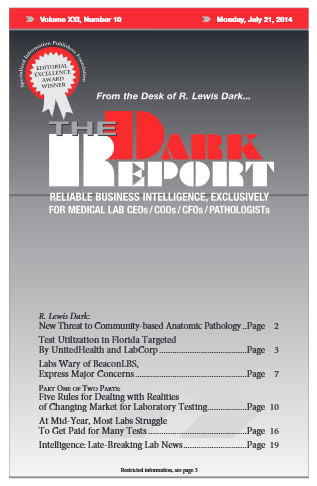CEO SUMMARY: Lab executives asked to join UnitedHealth’s new BeaconLBS lab benefit management system soon to launch in Florida have multiple and serious concerns. The primary issue is that BeaconLBS is a subsidiary of LabCorp—their major competitor. These executives understand why a payer wants to implement a prior authorization program for expensive lab tests. But …
Labs Wary of BeaconLBS, Express Major Concerns Read More »
To access this post, you must purchase The Dark Report.


